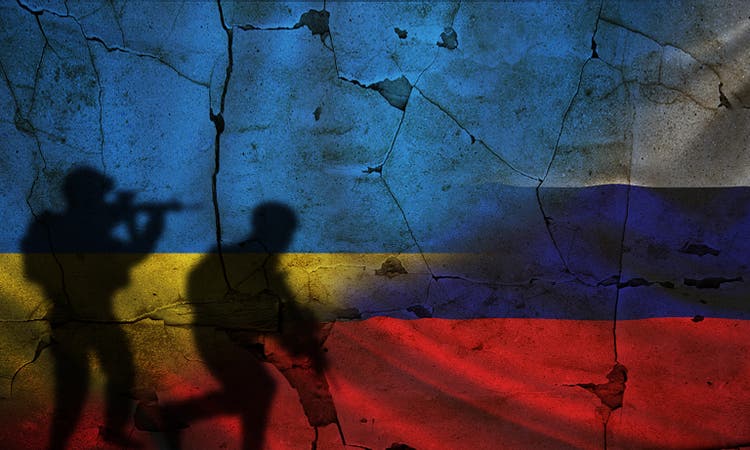IherPhoto/iStock via Getty Images
Russia’s attack on Ukraine will have lasting and negative effects on the world economy, with especially harsh impacts on Russia for a decade or longer, lesser negative consequences on Europe for a decade, with even smaller effects on the U.S. and the rest of the global economy.
Underlying this economic forecast is an assumption that the war does not go nuclear, in which case things would get much worse. That is an assumption; don’t ask an economist to predict the outcome of a war.
Russia will be a pariah in the international community for a decade or longer. Although most international sanctions would be removed if an agreement between Russia and Ukraine is reached, some sanctions may remain. More significantly, Western businesses will not invest in Russian projects or joint ventures even where legal. Fear of another conflict, perhaps with the Baltic countries or elsewhere near Russia’s southern border, would deter long-term deals.
Without Western technological investment, Russia’s oil production will continue to deteriorate. Russia, like most other countries, pumped oil from easy locations first. Now the best opportunities to replace declining oil fields lie in the difficult territory such as Siberia and in shale deposits. In both cases, oil production requires technology beyond Russia’s internal expertise. Without western joint ventures, oil production will decline in the coming years.
Russia’s manufacturers will similarly be shunned by Western companies sourcing components for complicated equipment such as cars and machinery. Businesses fearful that another conflict would sever supply chains will ask themselves, “Why bother with Russia at all?”
Within Russia, businesses selling to the domestic market will see foreign sources of products and services as unreliable, leading to local sourcing at higher costs and a lower variety of available goods and services. This problem will reach down to, for example, small farmers. Buying a John Deere tractor without sure access to repair parts is a bad bet. And plenty of Russian-made tractors come with engines from Cummins or Mercedes. That will also apply to computers and machinery for small businesses across Russia.
Although Russian agricultural production and sales should be fairly safe, the overall economy will weaken, and the Russian people will be poorer for a decade or more.
Europe will also be worse off, though not nearly to the same extent. First, all European countries will choose to spend more on defense. Maybe they should have been spending more all along, but that does not contradict the point: spending on the military will increase without a concomitant expansion of productive capacity in Europe. Thus, economic growth will decline along with the standard of living of European citizens. This effect will be small but sure.
Most Europeans will pay more for energy. This economic impact could be lessened if Europe retreats from its decarbonization policies, but that is unlikely. It is certain that Europe will try to source energy from non-Russian countries, meaning at a higher cost than they have been paying.
Europe will also pay for some of the refugee costs, out of humanitarian concern for Ukrainians within their borders and nearby. They probably won’t spend a great deal relative to their overall budgets, and they may get a bonus: Ukrainians staying and joining the local labor force where they landed after fleeing the war.
The United States and the rest of the global economy will be mildly hurt, primarily through higher oil prices. Those prices won’t be as dramatically high as they are now if a truce is signed, but even then lower long-run oil production from Russia will cost the world as we switch to oil produced in higher-cost locations.
The world will also be a little worse off as more companies choose to shorten their supply chains. Complex global supply chains lower productions costs when they work well. Multinational corporations learned about supply chain fragility from the Japanese tsunami and Thai floods. Then the Covid pandemic tangles supply chains like an unruly snarl of yarn. Now we learn that two countries that are not manufacturing powerhouses still make some components critical to other countries’ businesses. The switch to shorter, more domestic supply changes will not be sweeping. But at the margin, when a business purchasing manager sees costs not too far apart for domestic versus foreign products, the decision will go to local sourcing.
The attack on Ukraine will have negative consequences for Russia, Europe, and the world. But we must keep in perspective that the world has been trending toward more peace, as seen by the evidence that Steven Pinker lays out in The Better Angels of Our Nature. The war in Ukraine is certainly a setback, but the harsh effects on Russia of Putin’s attack will likely dissuade other rulers from invading their neighbors.
Editor’s Note: The summary bullets for this article were chosen by Seeking Alpha editors.


Be the first to comment